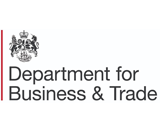Consumers saved from losing £252m to rogue traders
Inaugural National Trading Standards ‘Consumer Harm Report’ reveals annual data and predicts biggest threats for 2016 including energy, lottery and telephone preference scams.
National Trading Standards (NTS) teams prevented £252m* worth of loss to consumers and businesses in the last year, prevented more than 2.5m unsafeor non-compliant goods from entering the supply chain through our borders and convicted 100 criminals who are now serving a total of 118 years of prison time.
The figures are revealed in NTS’ first ever Consumer Harm Report, released today, which also shows that a total of £385,000 was returned to scam victims. Sadly though, identified victims of mail scams lost over £13m over the same periodand 200,000 people now appear on so-called ‘suckers lists’.
The report discloses results and key data across all NTS work areas over the last full measurable year from April 2014-March 2015, set out as per the organisation’s priorities: tackling criminal activity, protecting consumers and vulnerable people, safeguarding small businesses and supply chain integrity.
As well as looking back over the year, the Consumer Harm Report identifies seven emerging threats reported by teams across England and Wales:
- As government funding for the Green Deal comes to an end, scammers who had exploited the scheme are likely move on to new energy scams such as solar panels.
- There is a general increase in the variety of products now available to buy on social media and some of these can be downright dangerous – such as electrical items and ‘clocked cars’.
- Telephone preference scams are increasing, where a caller pretends to be from the Telephone Preference Service (TPS), claiming that the service now costs money, or offering to fit a – usually useless – call blocker device.
- Loan sharks are continuing to targetthose vulnerable to financial problems as they get to grips with Universal Credit and the cap on pay day loans.
- The use of subscription traps is on the rise. Enticing consumers and businesses, usually via email or a social media advert, to sign up to a free trial or pay a small fee to access an offer, victims are then trapped into making costly monthly payments.
- Changes to pensions that came into effect in April 2015 mean that new investment scams are emerging
- Secondary ticket sales, where unauthorised sellers sell fake or duplicate tickets while passing them off as official, are a growing problem that’s been particularly highlighted in the run up to the Rugby World Cup.
As part of his foreword, NTS Chair Lord Toby Harris also warns of the increasing sophistication of mass online scammers – and the face-to-face rogue traders upping their game to compete with them.
Lord Toby Harris, Chair, National Trading Standards, said: “We face a growing threat from criminals that set out to target consumers – including some of the most vulnerable people in society – and honest businesses. And it’s not just money they take from innocent people. Many victims feel they have lost their dignity, their self-confidence, their sense of security. For small businesses, entire livelihoods may be lost and this, in turn, damages the economy.
“At National Trading Standards we have limited resources and I’m all too aware that in many areas we may only be skimming the surface of the problem – particularly when it comes to the internet which is notoriously difficult to police. But I am proud of the work our teams are doing with the resources and powers that they have – preventing £252m loss in a year represents a saving for the public purse of £17.50 for every £1 spent. To me this shows that efforts to crack down on these parasites are well worth it. I am hopeful that in publishing this report more people will be inspired to take steps to protect themselves, and vulnerable loved ones. I’d also remind people to report anything suspicious to the Citizen’s Advice consumer helpline on 03454 04 05 06.”






